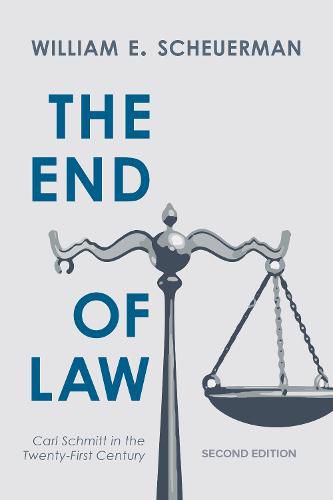Readings Newsletter
Become a Readings Member to make your shopping experience even easier.
Sign in or sign up for free!
You’re not far away from qualifying for FREE standard shipping within Australia
You’ve qualified for FREE standard shipping within Australia
The cart is loading…






Scholarly and political interest in the work of the controversial 20th Century German thinker Carl Schmitt has exploded in the 20 years since William E. Scheuerman’s important book was first published. However, Scheuerman’s work remains distinctive. Firstly, it focuses directly on Schmitt’s complex ideas about law situating his views within broader debates about the rule of law and its fate. The volume shows how every facet of his political thinking was decisively shaped by his legal reflections. Secondly, the volume takes Schmitt’s Nazi-era political and legal writings no less seriously. Finally, the volume offers a series of studies on figures in postwar US political thought (Friedrich Hayek, Hans Morgenthau, Joseph Schumpeter), demonstrating how Schmitt shaped their own influential theories. This timely second edition underscores how and why the recent growth of interest in Schmitt has been prompted by political developments, for example debates about counterterrorism and emergency government, and the rise of authoritarian populism.
$9.00 standard shipping within Australia
FREE standard shipping within Australia for orders over $100.00
Express & International shipping calculated at checkout
Scholarly and political interest in the work of the controversial 20th Century German thinker Carl Schmitt has exploded in the 20 years since William E. Scheuerman’s important book was first published. However, Scheuerman’s work remains distinctive. Firstly, it focuses directly on Schmitt’s complex ideas about law situating his views within broader debates about the rule of law and its fate. The volume shows how every facet of his political thinking was decisively shaped by his legal reflections. Secondly, the volume takes Schmitt’s Nazi-era political and legal writings no less seriously. Finally, the volume offers a series of studies on figures in postwar US political thought (Friedrich Hayek, Hans Morgenthau, Joseph Schumpeter), demonstrating how Schmitt shaped their own influential theories. This timely second edition underscores how and why the recent growth of interest in Schmitt has been prompted by political developments, for example debates about counterterrorism and emergency government, and the rise of authoritarian populism.